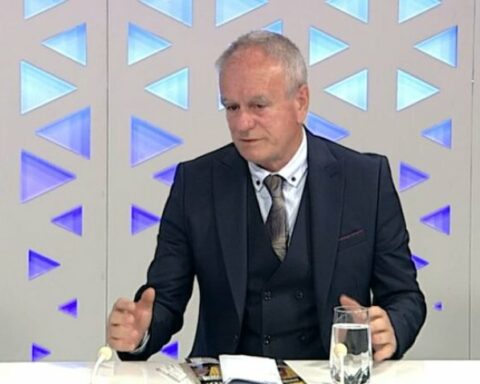
South Korean media expect the nation’s President-Elect to up the crypto tax limit to impose uniformity with stock market traders – and venture into the unknown with pro-crypto policies. However, this is likely to result in more regulation rather than a laissez-faire approach.
As reported, the main opposition candidate and former Prosecutor-General Yoon Suk-yeol won power earlier this week in a closely contested general election, beating his closest rival by less than a percentage point. Both candidates had made a range of pro-crypto manifesto pledges in a bid to win the votes of younger citizens.
But the big question for most crypto traders is – when Yoon takes power in May – will he deliver on these promises?
Little is known about Yoon as a political figure. As a career prosecutor, he only announced his plans to become a politician less than a year ago and has never previously stood for any other political office.
But South Korean media outlets, such as Yonhap and News1, as well as Money Today and Hanguk Kyungjae, examined the President-Elect’s comments and manifestos on crypto, and featured quotes from industry insiders who attempted to peek into the future of crypto under the soon-to-be President.
The outlets agreed that arguably the most eye-catching of all his crypto pledges was the promise to create parity between thresholds for crypto tax payment with KOSPI stock traders.
The current Moon Jae-in administration had created a law stating that all crypto-related earnings or trading profits above USD 2,100 per year would be subject to a 20% capital gains tax levy. But Yoon promised to raise that threshold to almost USD 41,000 per year (the current limit for KOSPI traders) when the new law comes into force.
The media outlets claimed that legal experts had opined that it would be “difficult to create laws and solve taxation issues in a short period of time,” and had already urged Yoon to reduce potential friction “as much as possible” via “communication with the [crypto] industry.”
Among Yoon’s other big promises were pledges to “review” and potentially do away with a blanket ban on token issuances on South Korean soil that has been in place since 2017. He has spoken in positive terms, too, about NFT adoption.
Oh Gap-su, the President of the Korea Blockchain Association industry pressure group, was quoted as saying:
“I expect that President-Elect Yoon will faithfully fulfill the promises he made to the people about blockchain and cryptoassets.”
Yoon has also promised to create a forward-looking “digital asset” act that will focus on bolstering “investor protection” and doing away with market manipulation, as well as ensuring that crypto operators are fully covered by insurance providers to protect against the dangers of “hacking and errors.”
He added that the plan would lay the framework for the creation of specialized financial institutions that “link digital asset trading accounts and banks.”
Industry insiders opined that companies who wish to make investments in cryptoassets should be allowed to do so, and that “policy support for academic research” should also be promoted.
However, blockchain industry insiders were quoted as stating that with precious little in the way of overseas precedent, Yoon would be venturing into uncharted waters with his policies.
One unnamed source was quoted as opining:
“There are very still few cases that can be referenced internationally, so I hope that [President-Elect Yoon] will actively communicate with the industry during the legislative process.”
Yoon was quoted as having said, in the lead-up to the election that “in preparation for the emergence of […] digital assets,” his government would “support technological development” and “preemptively prepare an institutional foundation.”
He also visited leading crypto exchanges as part of his campaign and talked of “creating an environment where cryptoasset investors can invest with confidence.”
___
Learn more:
– ‘Big Four’ South Korean Crypto Exchanges Say They’ve Blocked Russian Users
– South Korean Court Rejects Challenge to Strict Crypto, NFT Gaming Law
– Crypto Tax Trends in 2022: Increased Reporting, Updated Rules, and a Wealth Tax Debate
– More South Korean Crypto-to-Crypto Exchanges Hopeful of Making Fiat Returns
– These School Children to Take Crypto-related Lessons










